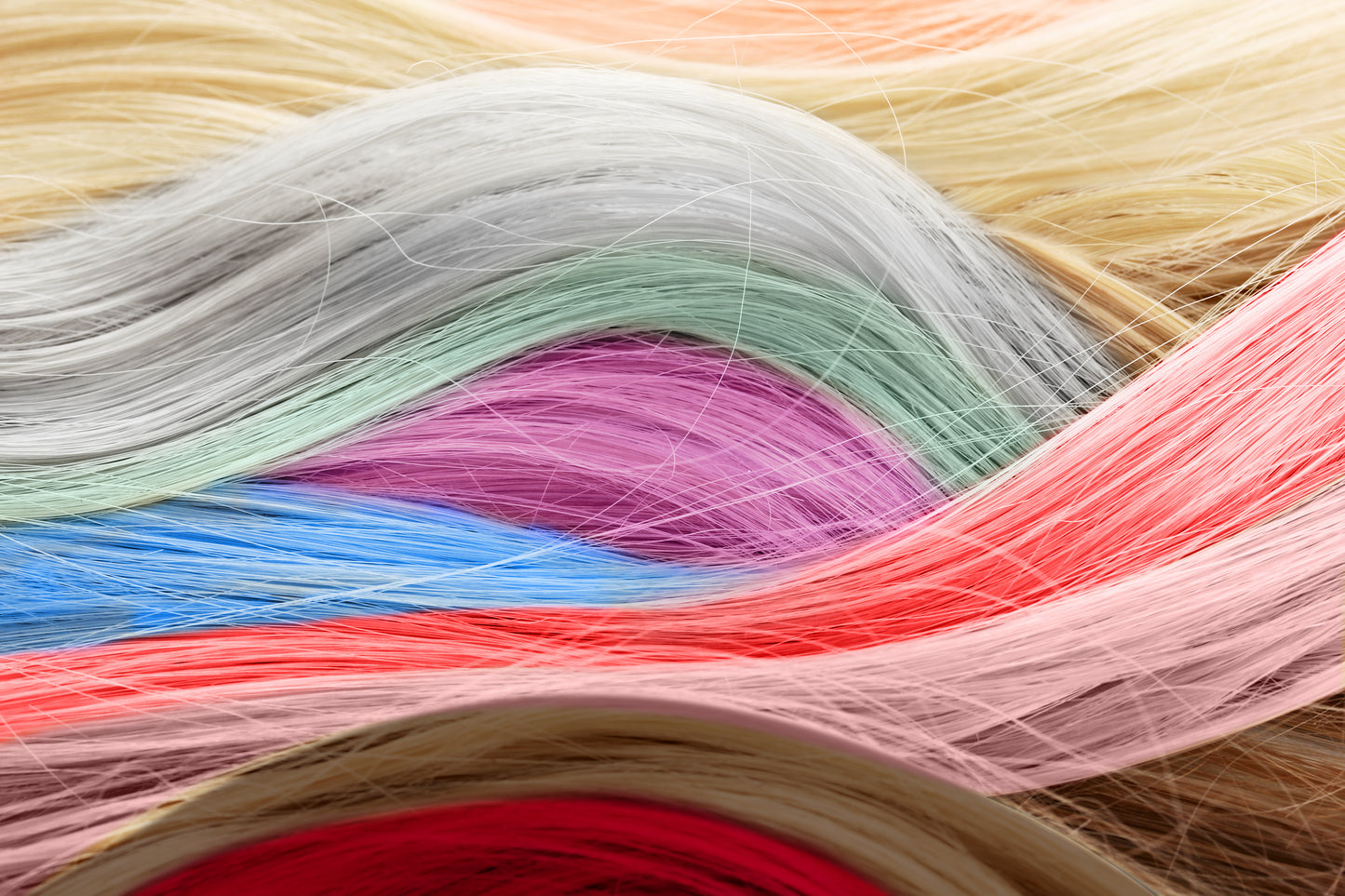
Exploring the Scientific Benefits of Plant Sterols on Hair Loss and Thinning
Introduction
Hair loss and thinning are common concerns for both men and women, often having a profound impact on self-esteem and overall well-being. While various factors contribute to these issues, emerging research has shed light on the potential benefits of plant sterols in combating hair loss and thinning.

Understanding Hair Loss and Thinning
Before delving into the benefits of plant sterols, it's essential to understand the underlying causes of hair loss and thinning. Genetics, hormonal imbalances, nutritional deficiencies, stress, and aging are all factors that can contribute to hair-related issues. The hair growth cycle involves three phases: anagen (growth), catagen (transitional), and telogen (resting). Hair loss occurs when the hair follicles prematurely enter the telogen phase, leading to shedding and thinning of the hair.
Enter Plant Sterols:
Plant sterols, also known as phytosterols, are naturally occurring compounds found in various plants. These compounds are structurally similar to cholesterol and play essential roles in plant cell membranes. Plant sterols are commonly found in foods like fruits, vegetables, nuts, and whole grains. They have gained attention in recent years due to their potential health benefits, including their role in promoting hair health. But to get the required amounts to have a therapeutic effect the person can’t consume enough in their daily diet.
Mechanisms of Action
The beneficial effects of plant sterols on hair loss and thinning are attributed to their multifaceted mechanisms of action:
- Inhibition of DHT Production: One of the primary drivers of hair loss is dihydrotestosterone (DHT), a hormone derived from testosterone. DHT binds to hair follicles, shrinking them and shortening the hair growth cycle. Plant sterols have been shown to inhibit the enzyme 5-alpha-reductase, which converts testosterone to DHT. By reducing DHT levels, plant sterols may help maintain the health of hair follicles.
- Anti-Inflammatory Properties and PCA primary cicactricial alopecia(: Chronic inflammation can contribute to hair follicle damage and hair loss, PCA is a good example of this. Plant sterols exhibit anti-inflammatory properties by modulating immune responses and reducing the production of inflammatory cytokines. This anti-inflammatory effect may contribute to a healthier scalp environment, supporting optimal hair growth.
- Antioxidant Protection: Oxidative stress, caused by an imbalance between free radicals and antioxidants, can damage hair follicles and impede hair growth. Plant sterols possess antioxidant properties, helping to neutralize harmful free radicals and protect hair follicles from oxidative damage.
- Strengthening of Hair Structure: Plant sterols may enhance the production of keratin, a protein that forms the structural basis of hair. By strengthening the hair shaft and reducing breakage, plant sterols contribute to thicker, more resilient hair.
Scientific Evidence
Several studies support the potential benefits of plant sterols on hair health:
- Clinical Trial on Phytosterols: Phytosterols, have been extensively studied for their potential to combat hair loss. The study in the Journal of Cosmetology and Trichology showed that with 30 patients, there was a drop in DHT by roughly 20 percent by those taking the plant sterols.
- Anti-Inflammatory Effects: A study published in “Bio Med Research International" demonstrated that plant sterols reduced inflammatory cytokines, this reduction in inflammation can have a wide range of benefits including potentially alleviating inflammation-induced hair loss.
- Role in DHT Inhibition: Research published by the National Institute of Health highlighted the ability of certain plant sterols to inhibit 5-alpha-reductase, reducing DHT levels and potentially preventing hair follicle miniaturization in.
Incorporating Plant Sterols into Hair Care
While the scientific evidence is promising, it's important to approach the use of plant sterols in hair care with practical considerations:
- Dietary Sources: Incorporating plant sterol-rich foods such as nuts, seeds, fruits, and vegetables into your diet can provide a natural source of these compounds. A balanced diet rich in essential nutrients supports overall hair health.
- Supplements: Plant sterol supplements are available in various forms. However, before incorporating any supplements into your routine, it's advisable to consult a healthcare professional to determine the appropriate dosage and ensure they won't interact with any existing medications.
- Topical Applications: Some hair care products are formulated with plant sterols to promote scalp health. These products, such as shampoos, conditioners, and serums, may provide localized benefits when applied directly to the scalp.
Conclusion
The potential benefits of plant sterols on hair loss and thinning, it's evident that these natural compounds hold promise in promoting healthy hair growth. By targeting multiple mechanisms, including DHT inhibition, anti-inflammation, antioxidant protection, plant sterols contribute to a conducive environment for robust hair follicle function. Incorporating plant sterol-rich foods and supplements into your routine could be a proactive step toward maintaining vibrant, lustrous hair.
Remember that individual responses may vary, and it's essential to consult with a healthcare professional before making any significant changes to your hair care regimen. With ongoing scientific advancements, the potential of plant sterols to address hair loss and thinning represents an exciting avenue for both researchers and individuals seeking effective solutions to their hair-related concerns.
- https://www.researchgate.net/profile/Soodabeh_Saeidnia2/publication/260126253_The_Story_of_Beta-sitosterol-_A_Review/links/0a85e5306d3065f2e0000000/The-Story-of-Beta-sitosterol-A-Review.pdf
- https://www.ncbi.nlm.nih.gov/pubmed/12006122
- https://link.springer.com/article/10.1007/s00403-011-1199-8
- https://www.ncbi.nlm.nih.gov/pubmed/22134564
- https://aadmeetingnews.org/2017-summer-meeting-wrap-up/hair-loss-and-inflammation-seeking-the-connection/
- https://www.ncbi.nlm.nih.gov/pmc/articles/PMC1868104/
- https://www.ncbi.nlm.nih.gov/pubmed/15304082
- https://www.medicalnewstoday.com/articles/68082.php
- https://www.thieme-connect.com/products/ejournals/abstract/10.1055/s-2007-971127
- https://www.sciencedirect.com/science/article/pii/S156757691100110X
- https://www.thieme-connect.com/products/ejournals/abstract/10.1055/s-0031-1298486
- https://www.researchgate.net/profile/Eugenio_Flores/publication/8938364_Effect_of_b-sitosterol_as_Inhibitor_of_5a-reductase_in_Hamster_Prostate/links/0c96051891cd0ded1d000000/Effect-of-b-sitosterol-as-Inhibitor-of-5a-reductase-in-Hamster-Prostate.pdf
- Panicker SP, Ganguly T, Consolo M, Price V, Mirmirani P, et al. (2012) Sterol Intermediates of Cholesterol Biosynthesis Inhibit Hair Growth and Trigger
- Zanzottera F, Nobile V, Bizzaro B, Michelotti A (2017) Efficacy of a Nutritional Supplement, Standardized in Fatty A ids and Phytosterols, on Hair Loss and Hair Health in both Women and Men. J Cosmo Trichol 3: 121. doi:10.4172/2471-9323.1000121
- Kurano M et al. Sitosterol prevents obesity-related chronic inflammation. Biochim Biophys Acta. 2018;1863(2):191-198.
